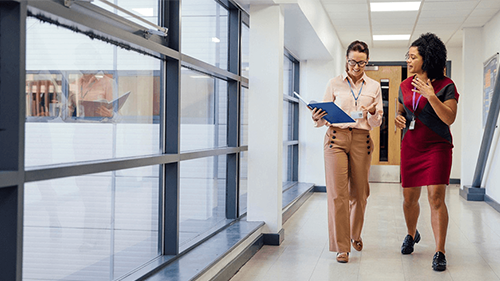So, you are a teacher that feels they could do a better job. This is a normal feeling in any job that is amplified when you are responsible for the minds of the future. Here are seven ways to make your teaching more effective:
Ask for Help
As a teacher, one of your greatest resources is your fellow teachers. They all have the same fears and anxieties you have about your teaching methods. The veteran teachers on staff will have already undergone a transformation in their process that you wish to as well. Go to them and ask for advice. They may have cogent suggestions for how you can adjust the way to teach to cater more to your students. You will have to make your teaching have your personality, but the advice should help you get to where you want to be.

Institute More Fun into the Curriculum
Effective teaching is all about engagement for the students. Although lectures are important, they can be unengaging, due to how boring they can get. If students are not engaged, they will not be paying attention, leading to a lack of comprehension. My fix for this problem would be to institute some fun that can get your students more invested in your class. Whether this means showing a movie or playing a game, just do something that can teach as well as entertain your students.

Innovate Within Your Lesson Plans
Due to the amount of planning that has to happen in order for a class to continue to chug along, sometimes teachers can lose sight of how to deliver information, as they have a narrow focus on the information itself. That is a mistake, as the way information is delivered is just as, if not more, important than what is actually being taught. It is like that theory that you need to put your dog’s pills in a hamburger to get them to eat them. So, make sure you are continually evolving the process by which you teaching to keep your students engaged.

Take an Interest in Your Students’ Lives, but Do Not Enable Bad Behavior
Sometimes, there is a disconnect between students and their teachers, as they have a purely professional relationship. Students think their teachers do not understand them. Make sure to bridge that divide by getting to know them on a personal level. Understand why they are struggling or succeeding, so you can learn the best way to aid them in their learning. But, this doesn’t mean that you should allow them to act in toxic ways just to build that connection. If the reason they are failing is that they don’t want to do the work, you should not enable them and convince them to change for the sake of their future.

Have an Open Flow of Communication with Your Students
Outside of having a personal connection with your students, the most important thing about your relationship with them is an honest flow of communication. During class, you should foster an environment where students feel as if they can offer critiques or offer advice on how the class can change to accommodate each student. The class is all about them, so talking to them to understand what they want is incredibly important. You do not have to take every suggestion, but implementing changes based on their input will show them that the class evolves based on their words.

Connect with Your Students Based on Their Interests
Some classes can be quite alienating, as students feel as if what they are learning is inessential or does not apply to their lives and experiences. So, in order to abate that feeling of apathy, adjust your lesson plan to reflect your student’s interests. Talk to them, get to understand what they connect to, and find ways for the students to get into the subject through the prism of their experience. Everything has connective tissue to something else, so find that tissue in order for your students to understand the material more intimately.

Treat Your Students Like Adults
When students have a true disconnect between themselves and their teacher, it is almost always due to the student feeling as if the teacher is treating them as a child. This is a huge mistake, especially once teaching in high school. Students want to be taught but given enough space to make their own connections and piece the information together themselves. Hand holding can be helpful when the complex material is being covered, but more often than not, students want the opportunity to prove their own intellect by taking an active role in their learning. Not everything needs to be outlined in a way that allows for no room for the student to exhibit their intellectual prowess.






